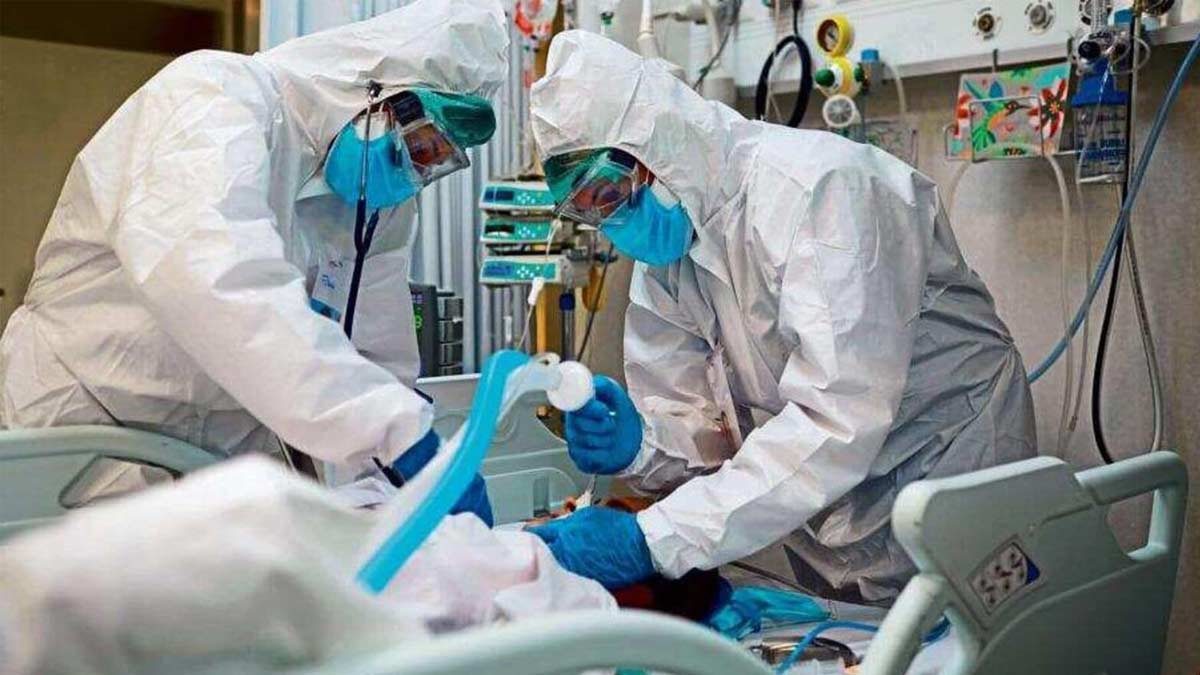
A recent advisory from the Health Department in Chandigarh on seasonal influenza H1N1 has taken on new urgency following the diagnosis of a local doctor with swine flu. The doctor, currently receiving treatment and under observation at GMSH-16, is in stable condition. Close contacts and family members are also being monitored for symptoms, highlighting the importance of vigilance during flu season.
Table of Content:-
Transmission and Seasonal Patterns
Swine flu, scientifically known as H1N1 influenza, spreads similarly to other forms of seasonal flu. The virus is transmitted through droplets released into the air when an infected person coughs or sneezes. These droplets can be inhaled by others, leading to the spread of the virus. The monsoon season, characterized by high humidity, creates an environment conducive to the spread of various respiratory viruses, including H1N1 and adenoviruses.
Common Symptoms of Swine Flu In Cases Around Chandigarh
The symptoms of swine flu closely resemble those of the seasonal flu, making it essential for individuals to be aware of the signs to seek timely medical attention. As per Dr Vikas Maurya, Director and HOD - Pulmonology, Fortis Hospital Shalimar Bagh, common symptoms include:
- Cough
- Fever
- Sore Throat
- Runny or Stuffy Nose
- Fatigue
- Headaches
.jpg)
Severe Symptoms and Diagnosis
While many cases of swine flu present with mild to moderate symptoms, severe cases can occur. Serious symptoms to watch for include:
- Difficulty Breathing
- High Fever
- Bluish Skin or Lips
- Blood in Sputum
- Persistent Vomiting
Diagnosis of swine flu is confirmed through an RT-PCR test, which detects the presence of the H1N1 virus in respiratory samples.
Health Department Advisory
Dr. Suman Singh, Director of Health Services, has emphasized the importance of preventive measures and timely medical intervention. The hospital has designated a four-bed isolation ward to manage cases requiring isolation. The Health Department's advisory includes several key recommendations to prevent the spread of the virus:
- Avoid Close Contact: Keep distance from individuals displaying flu symptoms.
- Self-Care: Use paracetamol for fever and body aches, but avoid antibiotics without a doctor's prescription.
- Hydration and Nutrition: Drink plenty of fluids and maintain a nutritious diet to support immune function.
Preventive Measures
To minimise the risk of contracting and spreading swine flu, it is crucial to follow preventive measures diligently:
- Hand Hygiene: Wash hands frequently with soap and water or use an alcohol-based hand sanitiser.
- Respiratory Etiquette: Cover your mouth and nose with a tissue or elbow when coughing or sneezing.
- Face Masks: Wear masks in crowded places or when in close contact with individuals showing symptoms.
- Avoid Touching Face: Refrain from touching your eyes, nose, and mouth to reduce the risk of infection.
Monitoring and Support
The Health Department is actively monitoring the situation, with a focus on early detection and isolation of new cases. Close contacts of the infected doctor are under surveillance, ensuring any new symptoms are promptly addressed. Public awareness campaigns are being conducted to educate the community on recognising symptoms and seeking medical care when necessary.
Also Read: WHO Joins Hands With IOC And France To Support Healthy Paris Olympics
Bottomline
The recent case of swine flu in Chandigarh serves as a reminder of the importance of preparedness and vigilance during flu season. By adhering to preventive measures and staying informed about the symptoms, individuals can help reduce the spread of the virus and protect themselves and their communities. The Health Department's proactive approach, including monitoring and advisory measures, aims to mitigate the impact of swine flu and ensure timely medical care for those affected.
Also watch this video
How we keep this article up to date:
We work with experts and keep a close eye on the latest in health and wellness. Whenever there is a new research or helpful information, we update our articles with accurate and useful advice.
Current Version